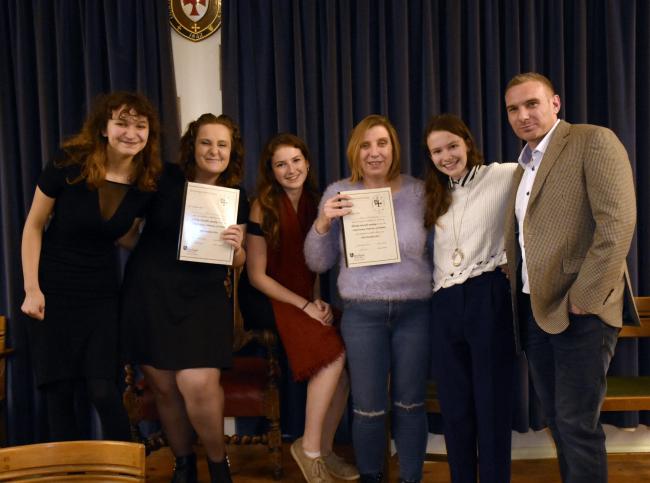
A GROUP of recovering addicts and people at risk of homelessness have been learning how to do formal debating as part of a project aimed at helping them learn new skills.
The Second Chance programme is run by Durham University and sees students mentor other adults to help them learn the art of debating.
- Read more Durham news from the Northern Echo
Members of Durham Union Society, the university’s main debating society, were working with people from charities Free the Way, which is based in Seaham and helps recovering addicts into independent living, and Durham Action on Single Housing (DASH), a city charity devoted to support people who are homeless and at risk of homelessness.
It lasted for seven weeks and members of the society coached and mentored the participants, leading up to a big set-piece debate in the university’s debating chamber in Palace Green.

Some of the participants in the Second Chance programme
Scott Marks, who participated in the programme, said: “I thoroughly enjoyed learning the art of debating. My first attempt at delivering a short speech I’d written was a bumbling mess.
“However, through the weeks of coaching and confidence-building, I was able to deliver a coherent and decisive argument for my case.
“I’d highly recommend anyone to partake in this activity.”
Another participant, from DASH, added: “I never thought I would gain as much from the training programme as I did. It is an opportunity not to be missed.
“The students are a credit to Durham University. They were very approachable, answering all queries and supportive throughout, including respecting all the participants’ personal opinions and views.”
The programme has run annually for more than a decade, during which time more than 200 people have taken part.
The 2018 programme included 20 participants from Free the Way, which offers accommodation, support and development programmes to recovering addicts and DASH.
Quentin Sloper, director of the university’s Experience Durham, said: “It’s great to see our students using their love of debating to help people in local communities.
“Debating may seem formal, but it’s a great way to build confidence and communication skills which can help people find work and become positive citizens.”
The final debate was entitled “This house believes that the world would be a better place without nuclear weapons”, which was won by the opposition and was followed by a celebration event.



Comments: Our rules
We want our comments to be a lively and valuable part of our community - a place where readers can debate and engage with the most important local issues. The ability to comment on our stories is a privilege, not a right, however, and that privilege may be withdrawn if it is abused or misused.
Please report any comments that break our rules.
Read the rules here